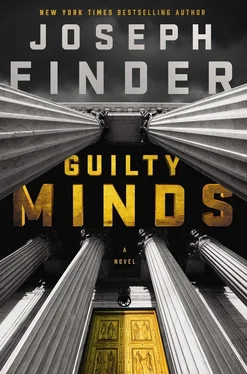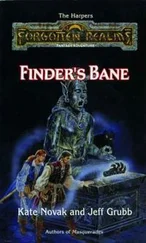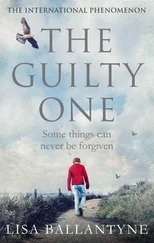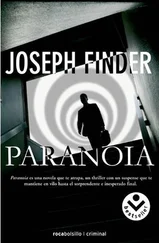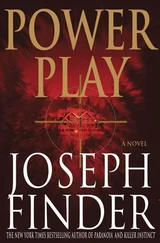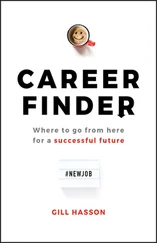My nerves didn’t stop jangling, and my heartbeat didn’t return to normal, until I reached Connecticut Avenue.
I parked the Suburban in a space on Sixteenth Street and returned to the hotel. I nodded at the doorman and found the bank of elevators. We were on the third floor. My suite was number 322. Dorothy, across the hall, was 323. I touched the keycard to the sensor above the lever handle and it winked green to let me in.
It was close to ten o’clock in the evening, and it had been a long day. I was exhausted. I checked my e-mail to see if anything had come in, but there was nothing that required my immediate attention. The connecting door to Kayla’s room was closed. I had left it open. Maybe she had closed it for privacy. I preferred it left open.
I changed into a T-shirt and a pair of sweats, and then knocked softly on the door, in case she was awake. No answer. I opened the door and peered around. The room was dark but a light in the bathroom was on.
Her bed looked empty. She was probably in the bathroom. I entered her room and knocked on the bathroom door.
The door was slightly ajar, I saw.
“Kayla?” I said.
No answer.
I knocked again, and the door came open an inch or so.
“Kayla?”
Still no answer. Odd. Maybe she wasn’t in the bathroom; she’d gone somewhere, left the room. Exactly what I told her not to do.
Tentatively I pushed the door open, and what I saw next at first didn’t register.
I smelled blood, dark and sweet and metallic. My stomach flipped and my heart began to clatter. I saw Kayla slumped down in what looked like a bathtub filled with blood. Her eyes were open and staring at nothing. Her face was pale, lifeless. Her lips were bluish. Her breasts and abdomen were covered in blood. I took another step and saw one hand curled against her belly, long parallel gashes cut into her wrists, lengthwise. Another couple of gashes at her neck, one that apparently had severed the carotid artery. My eyes were caught by a glint of light. I turned to see, on the bathroom sink, a broken wineglass, the shards scattered across the vanity. One particularly large shard, smeared with blood, twinkled on the edge of the tub. I put a couple of fingers on her neck, next to her windpipe, and felt no pulse, just cold flesh, and I knew it was too late.
The paramedics canceled the ambulance as soon as they arrived. There was no need for it. There was no question whether she was dead. I heard one of the uniformed officers in Kayla’s hotel room calling for homicide, which was standard — homicide detectives showed up to investigate any death outside a medical environment — and adding, “but I’m pretty sure it’s a suicide.”
An investigator and a driver from the medical examiner’s office showed up shortly thereafter and began murmuring to each other and taking pictures and measurements. Dorothy and I sat in the suite living room, mostly in stunned silence, in a state of shock. Dorothy cried. I was feeling hollow.
I was surprised at how torn up I was by Kayla’s suicide. On some level it felt like my fault. She was on track to make a hundred thousand dollars with a concocted story about Justice Claflin. Until I came along. I’d set off a chain reaction that ended in her feeling alone, desperate, scared, and hopeless. If I hadn’t gotten involved, she might still be alive. And what if I hadn’t broken into Schmidt’s house but stayed here instead? Maybe she’d have had someone to talk to. Maybe she wouldn’t have felt so alone.
I barely knew the girl; I should not have felt her death so powerfully.
Around ten minutes later a homicide detective from Washington Metro Police showed up. He introduced himself as Detective Balakian. He was a young guy, couldn’t have been much more than thirty, with a gold stud earring in his left ear and a Kurt Cobain goatee with chin strap. He was snappily dressed in a skinny black tie, a white shirt with short collar points, skinny trousers, and a quilted Barbour-looking coat. He wore cool-nerd eyeglasses. On his right inside wrist, I noticed when we shook hands, he had a tattoo of an infinity sign. He was the hipster cop, and I took an immediate dislike to him. Most cops at that hour smell like Burger King; he smelled like bánh mì.
While the medical examiner’s investigators and the mobile crime unit people were photographing Kayla’s body and taking measurements, the groovy cop started asking us questions in a soft-spoken voice. He took down our names and brief descriptions of who we were in a small flip-down notebook.
“What’s her name, the deceased?”
I told him.
“What’s your relationship with her?”
“None,” I said. “She asked me to pick her up at a general aviation airport in Fairfax. She was being taken somewhere against her will.”
That naturally piqued his interest, so he asked me to explain, and I did.
“She’s ‘Heidi’? From — Slander Sheet?”
The hipster detective kept up with the tabloid news. I nodded.
“ I see. So you’re a private investigator?” He smirked. “Like, one of those cruller-munching divorce dicks, that it?”
“Huh,” I said. “Is that what you learned from 21 Jump Street ?”
He nodded. Touché. “Does she have a purse or wallet with an ID?”
“No.”
“Does she have a phone or a laptop?”
“Not here.”
“No phone?”
“It was taken away from her en route to the airport.”
“Do you know who her next of kin are?”
“I know she has a sister in prison. Apart from that, I don’t.”
“Did she have a criminal background, to your knowledge?”
“I don’t know.” But I knew what he was really asking. If she had a criminal background, if she’d ever been arrested, her fingerprints would be in the system somewhere, and they’d be able to make a positive identification of her body. Without next of kin or any ID, they were going to have problems.
“I didn’t find a note,” Detective Balakian said. “Did either of you find anything that looked like a note?”
I shook my head, and Dorothy said no.
“How about her mental state earlier tonight? Was there anything about her, thinking back on it now, that may have indicated she was contemplating killing herself?”
“No.”
“But you did talk with her?”
“We talked, yes. But nothing indicated she was considering suicide. Absolutely not. Though she didn’t like being what she called a ‘prisoner’ here.”
“Was she?”
“Not at all. She could have left at any time. Though I urged her to stay here.”
“So why did she call herself a prisoner?”
“Because I told her not to answer the phone or the door. To let no one in.”
“How would you describe her mental state?”
“She was frightened of the people blackmailing her, that was pretty evident. She was afraid for her sister in prison, what they might do to her. She was scared.”
“All right. I found some little bottles of Scotch and vodka in the trash. Did you witness her drinking?”
“She and I each had a drink or two.”
“So that wasn’t all her.”
“Right.”
“She’d just been humiliated publicly,” Detective Balakian said. “Did she indicate how that might have affected her?”
“We didn’t talk about that.”
“When you left her this evening, she seemed fine?”
“That’s right. Upset and scared, yes. But not suicidal.”
“Where did you go this evening?”
I paused for an instant. Breaking into an ex-cop’s house . Yeah, that would go over well. I couldn’t claim I’d met with someone or he’d want to know who. If I said I went out for dinner, where did I eat?
Читать дальше
